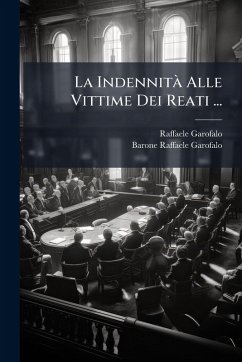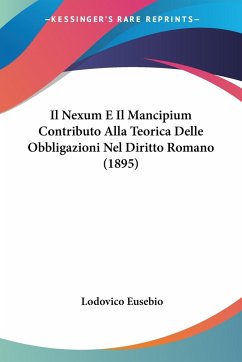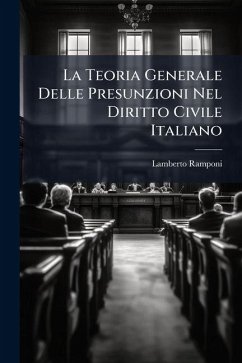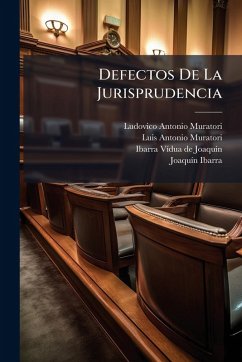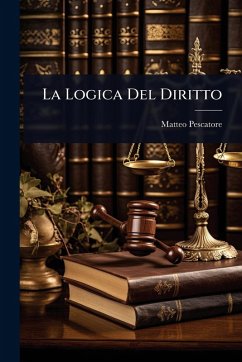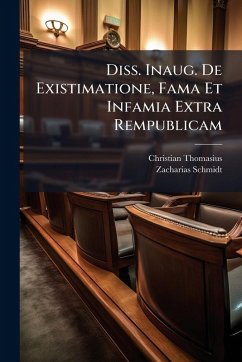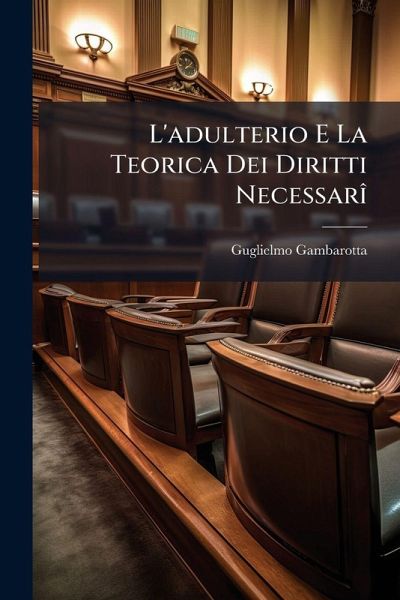
L'adulterio E La Teorica Dei Diritti NecessarÃ(R)

PAYBACK Punkte
10 °P sammeln!
L'adulterio E La Teorica Dei Diritti NecessarÃ(R) by Guglielmo Gambarotta, published in 1898, delves into the legal and theoretical aspects of adultery. Written in Italian, the book offers insights into the jurisprudence and legal history surrounding adultery during the late 19th century. Gambarotta's work explores the concept of 'necessary rights' in relation to adultery, providing a historical context for understanding the social and legal attitudes of the time. This book is a valuable resource for scholars and researchers interested in legal history, criminology, and the evolution of legal...
L'adulterio E La Teorica Dei Diritti NecessarÃ(R) by Guglielmo Gambarotta, published in 1898, delves into the legal and theoretical aspects of adultery. Written in Italian, the book offers insights into the jurisprudence and legal history surrounding adultery during the late 19th century. Gambarotta's work explores the concept of 'necessary rights' in relation to adultery, providing a historical context for understanding the social and legal attitudes of the time. This book is a valuable resource for scholars and researchers interested in legal history, criminology, and the evolution of legal thought in Italy. This work has been selected by scholars as being culturally important, and is part of the knowledge base of civilization as we know it. This work was reproduced from the original artifact, and remains as true to the original work as possible. Therefore, you will see the original copyright references, library stamps (as most of these works have been housed in our most important libraries around the world), and other notations in the work. This work is in the public domain in the United States of America, and possibly other nations. Within the United States, you may freely copy and distribute this work, as no entity (individual or corporate) has a copyright on the body of the work. As a reproduction of a historical artifact, this work may contain missing or blurred pages, poor pictures, errant marks, etc. Scholars believe, and we concur, that this work is important enough to be preserved, reproduced, and made generally available to the public. We appreciate your support of the preservation process, and thank you for being an important part of keeping this knowledge alive and relevant.



